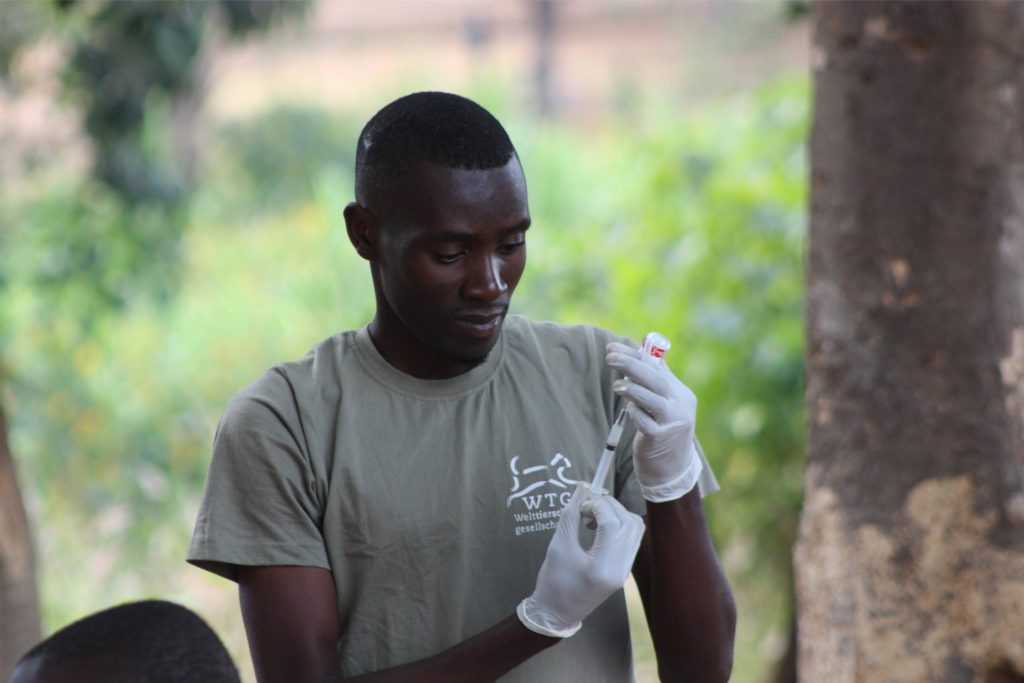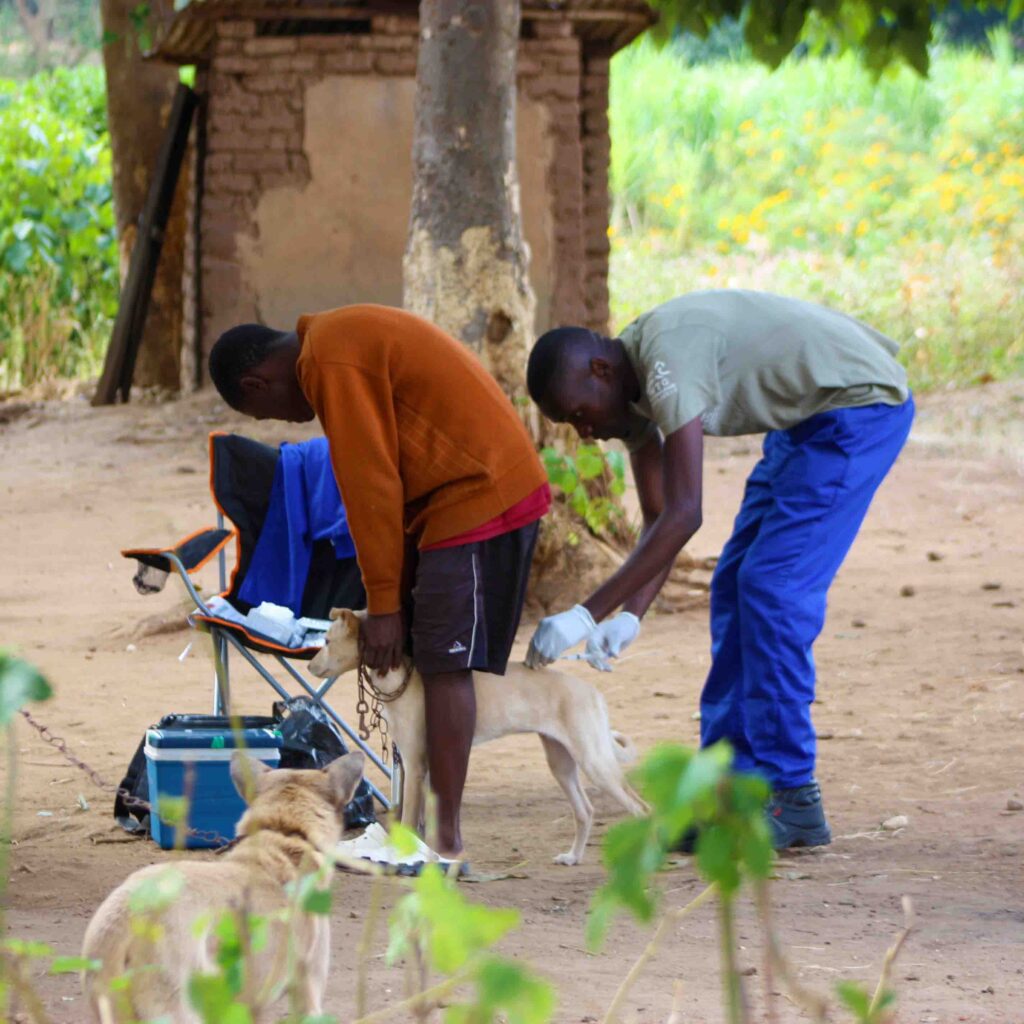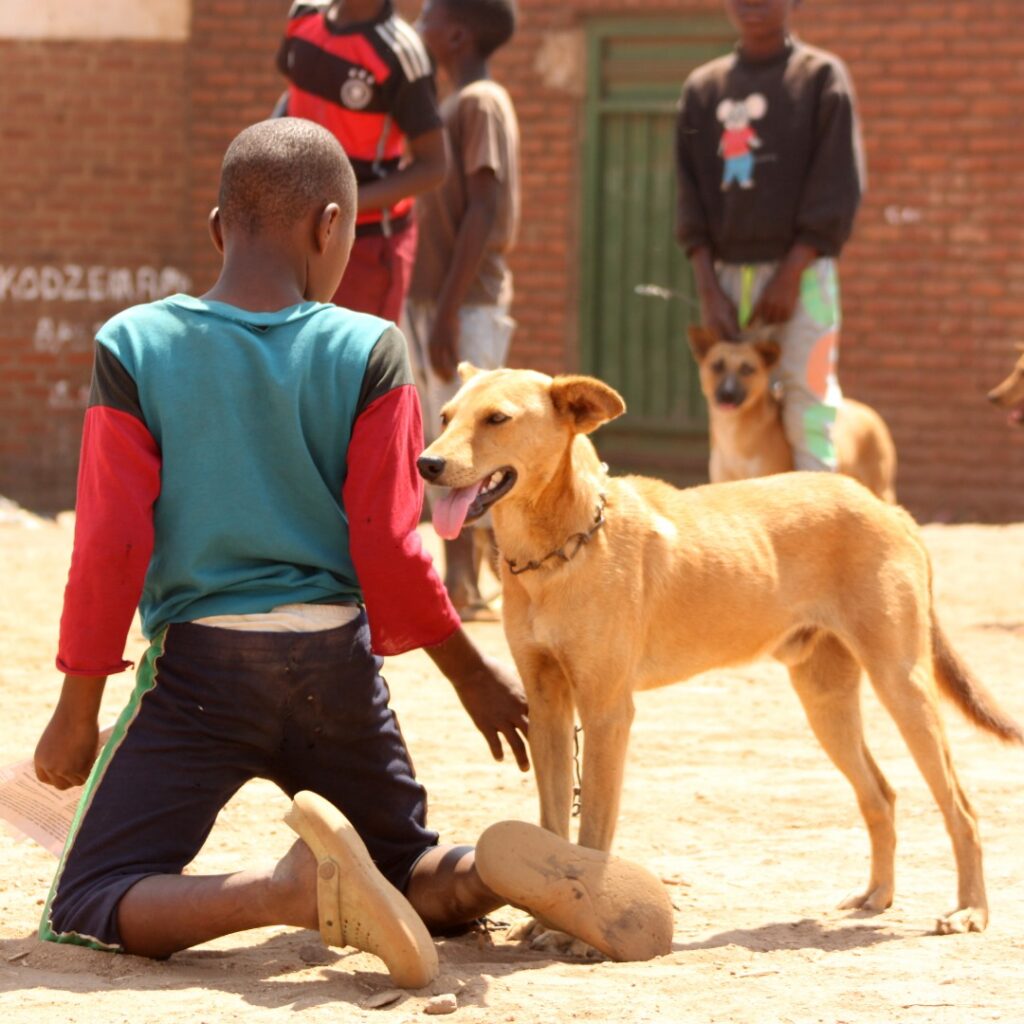Rabies Control



The LSPCA operates a comprehensive rabies control project across various parts of Lilongwe, contributing to the global strategy of eliminating dog-mediated human rabies deaths by 2030. We vaccinate an average of 30,000 dogs and cats every year in urban and per-urban areas. Our ongoing vaccination efforts prioritize areas with large dog populations, past rabies cases, and high rates of dog bites, working diligently to protect both animals and humans from this deadly virus. So far, there has been significant progress.
Key interventions of the Rabies Control Project

Vaccination Effort
Both dogs and cats are vaccinated against rabies as required by the law of Malawi. LSPCA implements ongoing rabies vaccinations in at least 10 different areas throughout the year. We also conduct remedial vaccinations in areas where animals test positives for rabies, regardless of whether they are within our target areas.

Community Engagement
Rabies Action Groups (RAGs) are community-based groups dedicated to rabies control and prevention. The LSPCA team educates and trains RAGs on the causes of rabies, prevention methods, and actions to take in the event of bites by suspected animals. RAGs also publicize the vaccination sites, collect data on rabies cases, and contribute to community-based Rabies Surveillance (CBRS), Communication between the LSPCA and RAGs is an integral part of the CBRS process, ensuring effective monitoring project progress.

Education
Through our education initiative, we teach students in public schools about the risks of rabies and how to behave around dogs to prevent bites. This is done using visually impactful posters and engaging presentations. To date, LSPCA has reached over 200,000 children in Lilongwe every year since the Rabies Control Project started.

Data Collection
Data is captured using the DHIS2 application, developed in partnership with the Global Alliance for Rabies Control (GARC). The DHIS2 app includes a bite case tracker, education initiative tracker, rabies case surveillance tracker, and rabies vaccination tracker. The DHIS2 application is used national wide to track data on several diseases like COVID-19 and malaria. Officials from District Health Offices, Central Veterinary Laboratory, NGOs, and the Department of Animal Health and Livestock Development across Malawi are being trained on the rabies component in collaboration with GARC to ensure reliable data collection and interpretation.

Toll Free
LSPCA operates a toll-free hotline (172) for communities to report suspected rabies cases. Our team follows up on these reports to test the suspect animals and conduct remedial vaccinations if they test positive.

Partnerships
LSPCA partners with Welttierschutzgesellschaft (WTG) in Germany to implement this project. Local partners are the Department of Animal Health and Livestock Development (DAHLD), Lilongwe City Council (LCC) and the Agricultural Development District Offices.
